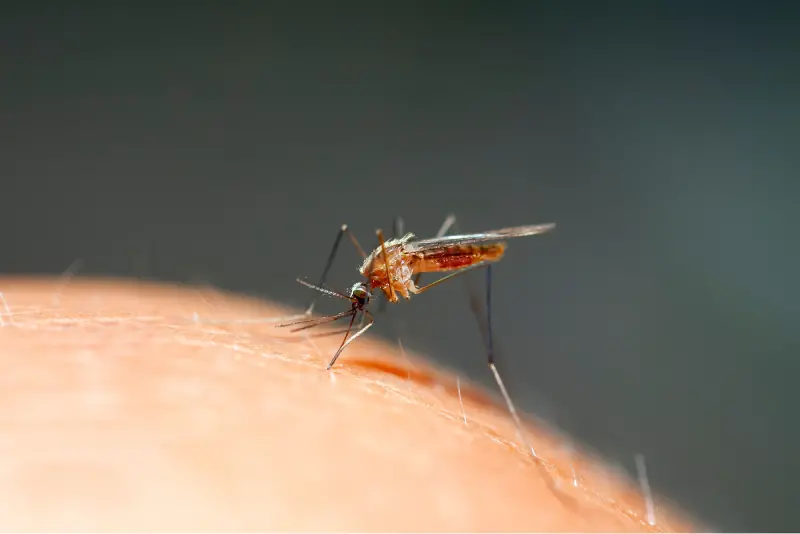
In Georgia, the warm spring and summer evenings are often accompanied by the unwelcome buzz of mosquitoes. While mostly a minor irritant, it’s crucial to remember that mosquitoes can also be carriers of serious diseases. Malaria and Zika virus dominate headlines globally, but our local region must remain vigilant about Eastern Equine Encephalitis (EEE) and West Nile Virus. These diseases are rare, but real risks exist.
In this blog, we’re here to set the record straight with facts about mosquito-borne illnesses in Georgia, helping you understand the risks and how to protect your loved ones.
Do Mosquitoes in Georgia Carry Eastern Equine Encephalitis (EEE)?
Yes, mosquitoes in Georgia can transmit Eastern Equine Encephalitis, although cases are rare. This virus can affect humans and horses, posing a severe risk in the few instances of human infection. While there is a vaccine available for horses, no such vaccine exists for humans, emphasizing the importance of prevention.
Here are some symptoms to watch for:
- Sudden onset of headache
- High fever
- Chills
- Vomiting
- Severe neurological issues (in extreme cases)
Do Mosquitoes in Georgia Carry West Nile Virus?
Yes, mosquitoes in Georgia are also carriers of West Nile Virus. Although again rare, the potential for infection exists and should not be underestimated. The Georgia Department of Health has recorded 81 cases between 2018 and 2022, proving that vigilance is necessary. Most people infected with West Nile Virus may not exhibit symptoms, but it’s vital to be aware of the signs, especially since severe cases can lead to serious health issues.
Symptoms include:
- Mild fever
- Headache
- Muscle pain
- Fatigue
- Neurological effects in severe cases
Which Mosquito-Borne Diseases Are in Georgia?
How big of a risk are mosquito-borne diseases in Georgia really? Let’s go down the list of common mosquito-borne diseases and whether there have been any recent locally transmitted cases.
- Malaria: No recent cases
- Dengue: No local cases – about five cases per year occur after travel
- Schistosomiasis: None
- Yellow Fever: No recorded cases
- Zika Virus: No record of any locally transmitted cases in Georgia
Good news, right? The risk is relatively low. While that is true, it’s important to remember that malaria and Zika cases have been reported in Florida, just one state away. This underscores the fact that even though the current risk is low, continued vigilance is still important.
Why Is It Important to Monitor Mosquitoes Even If They Don’t Carry Disease?
Mosquito monitoring remains critical even in regions where disease transmission is currently low. The keyword here is “currently.” Mosquito populations and the diseases they carry can shift geographically over time. Changes in climate and human movement can introduce new mosquito-borne diseases to areas previously unaffected.
However, by keeping an eye on these populations and potential disease carriers, we can stay one step ahead of possible future outbreaks.
Call Georgia’s Mosquito Control Experts Today
While the risk of contracting mosquito-borne diseases in Georgia remains low, the presence of diseases like Eastern Equine Encephalitis and West Nile Virus underlines the importance of proactive mosquito control.
In a state known for its humid climate, mosquito populations can thrive, making professional mosquito control not just a convenience but a necessity. Protect your home and family; call us today for a free estimate on comprehensive mosquito control services.

